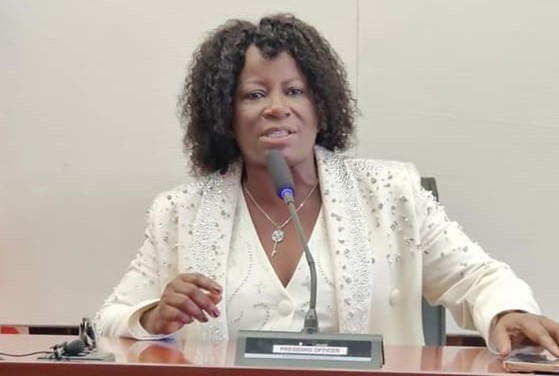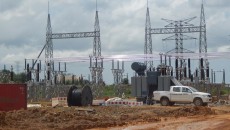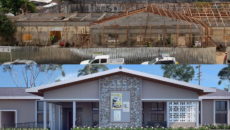MONROVIA, Montserrado− The Liberian Senate has taken a proactive step towards improving the delivery of electricity services in the country.
The Senate has mandated its joint committee on Judiciary, Mines, Energy and Natural Resources to review the laws creating the Liberia Electricity Corporation and the Liberia Electricity Regulatory Authority.
Established in 1973, LEC was tasked with producing and supplying affordable, efficient, and reliable electric power across the country, while LERC was created in 2015 to regulate the sector by issuing operator licenses, approving tariffs, and improving service delivery.
Despite the existence of these institutions, there have been growing concerns about the effectiveness and efficiency of service delivery in the electricity sector. The Senate’s review aims to compile recommendations to enhance the sector. The committee was tasked with identifying areas where the current laws may be lacking or need to be updated to serve the public better.
The Senate’s decision followed a report presented to it by a joint committee on public corporations, mines, and energy. That report recommended privatizing the sector and resulted from an investigation into a complaint filed by Gbarpolu’s Sen. Amara Konneh on LEC’s ongoing load shedding.
In his complaint, Sen. Konneh said the severe load shedding was hampering the economy, as businesses, hospitals, and households were receiving irregular power supply.
“This practice not only stunts economic output by increasing the cost of running generators by small businesses, but [it] negatively affects hospital patients’ treatment and causes discomfort to household customers,” he said. He said LEC was grossly performing below capacity after nearly US$2 billion in investments over a period of 10 years.
“As I write, my community is in darkness and has been experiencing outages for the last two months,” he added.
The committee invited both the board chair of LERC, Lawrence Sekajipo, and the chief executive officer of LEC, Monie Captan to a public hearing on March 19. At the hearing, Sekajipo blamed the load shedding on LEC’s inability to generate and distribute adequate electricity as well as its failure to secure an expected 50 Megawatts from the Côte d’Ivoire-Liberia-Sierra Leone-Guinea Interconnection Project in September 2023, because of a huge debt it owed to the Ivorian government.
However, Captan denied that the debt was the cause of the power shedding; rather, he blamed a major technical breakdown in power generation on the Ivorian side that affected not only Liberia but Mali and other countries.
LEC’s capacity stands at 126 MW total – 88MW from Mount Coffee Hydro Power Plant and 38MW from the Bushrod thermal plants. An additional 27MW is also being imported from Cote D’Ivoire, through the CLSG project.
However, the hydro power plant has not operated at full capacity in a long time. In January 2021, one of the four turbines at the plant became damaged, reducing the capacity of the plant to 66 MW. At the same time, LEC has expanded and grown its customers to a little over 200,000 customers.
Captan said there were efforts underway to repair the turbine. Additionally, he said the corporation is now focusing on increasing its generation capacity with planned investments in solar and hydro.
“Let me say here that the World Bank is currently investing in 20 MW RESPITE Solar Power Project in Liberia, and the project is expected to be completed in one and half year while Hydro Power Plant will be expanded from four turbines to six turbines,” he revealed.
Vice President Jeremiah Koung, who presided over the hearing in his role as Senate president, also emphasized the need for a review of the laws.
“The Committee on Judiciary should look into the matter – go to LEC and LERC laws – restrict them and give them a defined role – then the electricity problem is solved,” he said. “Maybe we can say let LEC be the custodian of government electricity access, including generators, transmission lines, and the hydro. LEC should only generate power and not be involved with its distribution.”
“Give LERC the mandate to put out bids – put the community into blocks, find private people or companies to sell or do distribution of the current – that will solve the problem. LEC cannot be a player and referee at the same time – so, let the Judiciary [Committee] look at the two laws,” he added.
Montserrado’s Sen. Abraham Darius Dillon added to the recommendation by calling for government institutions to be given prepaid meters to avoid building a huge electricity bill and owing large amounts to LEC. Government institutions are often LEC’s biggest debtors.
“This is the 33rd debate on LEC since I entered the Senate [2019], and nothing has happened,” Dillon said. “It only takes courage for us to stand on this floor and make recommendations and then follow up the implementation so that the ordinary people can feel what we are here for. Anything short of that, we are just making speeches again.”
The Senate endorsed the recommendations on April 19 and forwarded to its Joint Committee on Judiciary and Mines and Energy to review and synchronize the recommendations and report within one week for subsequent submission to the Executive for action.
Featured photo by Office of the Senate Pro Tempore



